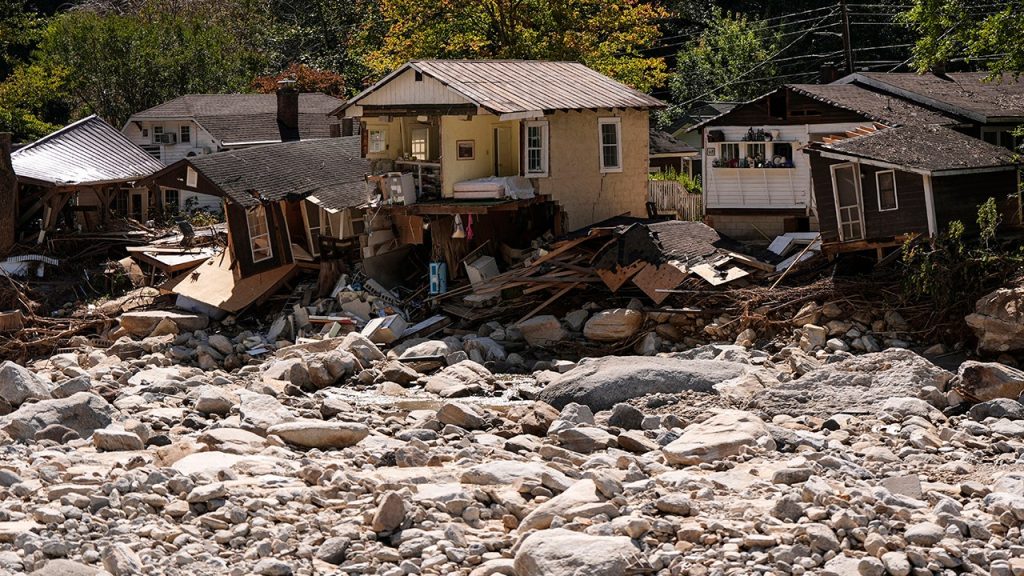The Federal Emergency Management Agency (FEMA) has announced a critical extension of the Transitional Sheltering Assistance (TSA) program for residents of North Carolina impacted by Hurricane Helene. Originally slated to expire on Tuesday, the program will now continue until January 25, providing a much-needed reprieve for thousands of individuals and families still grappling with the storm’s aftermath. The TSA program offers crucial financial support for temporary housing solutions, primarily in hotels or motels, allowing displaced residents more time to secure permanent housing or complete necessary repairs to their damaged homes. This extension comes as a significant relief, especially considering the impending winter season and the potential hardship faced by those still struggling to find stable living arrangements.
The extension underscores FEMA’s commitment to supporting the recovery process in North Carolina. While a significant number of affected households have successfully transitioned to longer-term housing solutions, over 3,000 families remain reliant on the TSA program. This indicates the ongoing need for temporary assistance and highlights the scale of the housing challenges posed by Hurricane Helene. The FEMA administrator has emphasized the importance of affected residents taking proactive steps to secure their housing situation and utilize the available resources to prevent further displacement. This includes actively seeking alternative housing options, applying for necessary aid, and collaborating with case managers to expedite the recovery process.
The decision to extend the TSA program reflects a responsive approach to the dynamic needs of disaster-affected communities. As the recovery timeline extends beyond initial projections, programs like TSA become even more crucial in bridging the gap between immediate relief and long-term stability. The availability of temporary housing provides a sense of security and allows individuals and families to focus on rebuilding their lives without the added stress of immediate homelessness. It allows them the time and space to address the multifaceted challenges of post-disaster recovery, from securing employment and accessing essential services to repairing damaged property and addressing emotional and psychological well-being.
The initial response to Hurricane Helene saw over 10,000 households seeking refuge in hotels under the TSA program, demonstrating the significant and immediate need for temporary shelter. The gradual decrease in the number of families utilizing the program signifies progress in the recovery efforts. However, the remaining 3,000 families highlight the continued need for assistance and the varying paces of individual recovery journeys. Some families may face greater challenges due to the extent of damage to their homes, financial constraints, or access to resources. The TSA extension provides a critical safety net for these families, ensuring they are not left vulnerable during the challenging winter months.
Beyond the FEMA-supported TSA program, North Carolina has mobilized a network of support systems at the county level, including shelters operated by local authorities and non-profit organizations. These resources provide additional avenues of assistance for individuals who may not qualify for FEMA’s TSA program or require different forms of support. This multi-layered approach to disaster relief ensures that a wider range of needs are addressed, providing a comprehensive safety net for affected communities. The collaboration between federal, state, and local entities, as well as non-profit organizations, demonstrates a collective commitment to supporting the recovery process and ensuring that no one is left behind.
In conclusion, the extension of FEMA’s TSA program until January 25 serves as a vital lifeline for thousands of North Carolina residents still struggling in the aftermath of Hurricane Helene. This extension recognizes the ongoing need for temporary housing solutions and provides a crucial bridge to long-term recovery. The collaboration between FEMA, state and local authorities, and non-profit organizations underscores a comprehensive approach to disaster relief, ensuring that a broad spectrum of needs are met. While significant progress has been made in the recovery process, the TSA extension ensures that vulnerable families have the stability and support they need to rebuild their lives and navigate the challenges of post-disaster recovery. This extension provides breathing room and allows affected families to focus on their long-term recovery without the immediate threat of homelessness, especially as the colder months approach.











